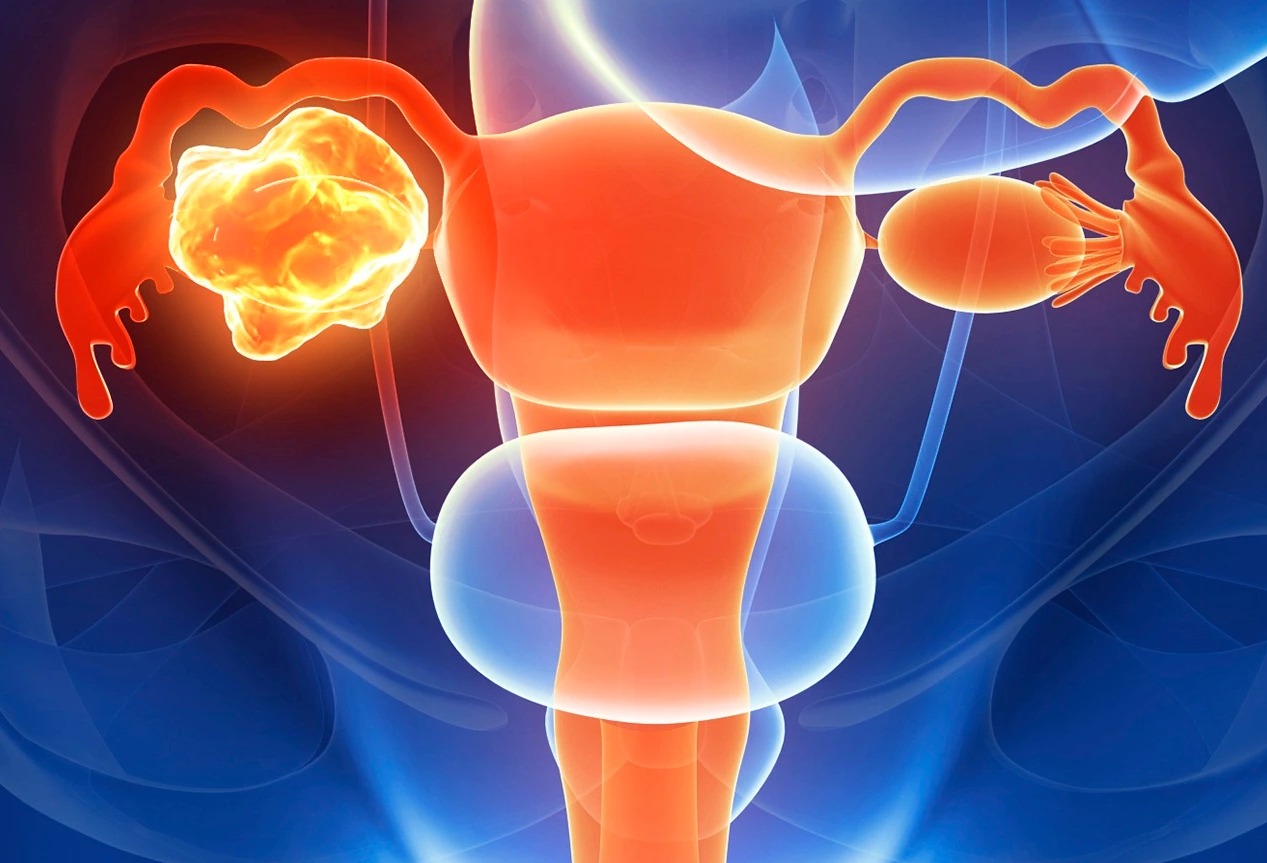AS one of the most deadly cancers to affect women – chances are you know what ovarian cancer is.
But can you name any of the symptoms?

There are around 4,100 ovarian cancer deaths in the UK every year
According to charity Target Ovarian Cancer a mere 3 per cent of women are confident in naming all of the symptoms of the disease.
It called for urgent action to raise awareness of symptoms of the killer illness.
Ovarian cancer affects about 7,000 women each year – making it one of the most common types of the disease in females.
Tragically, there are around 4,100 ovarian cancer deaths in the UK every year, that’s 11 every day.
The four main symptoms are persistent bloating; pelvic or abdominal pain; feeling full or a loss of appetite and an increased need to pee.
It warned low awareness rates mean that women may not be able to spot when something is awry and may delay seeking help from a GP.
Just one in five were able to identify bloating as a sign, according to the poll of 1,000 women across the UK.
Only 1 per cent were able to identify increased urinary urgency or frequency as a symptom and just 3 per cent knew feeling full or a loss of appetite could be a sign of ovarian cancer.
But almost a third (32 per cent) knew that pelvic or abdominal pain was a symptom.
Meanwhile, the charity said that 40 per cent of believe that cervical screening detects cases of ovarian cancer – when this screening is only able to check the health of a woman’s cervix.
“We must urgently go further to raise awareness, with sustained government-funded national awareness campaigns that highlight the symptoms of ovarian cancer in every nation of the UK,” the report authors wrote.
The new report also calls for more awareness among medics after it found that over a quarter of 447 women with ovarian cancer made three or more visits to their GP before being referred for tests.
The authors also said that there needs to be investment in the clinical nurse specialist workforce and better mental health support for patients.
Annwen Jones, chief executive of Target Ovarian Cancer, said: “Ovarian cancer is not going away. We can change the course of this disease.”
How is ovarian cancer treated?
The treatment for ovarian cancer depends on the type and how far spread it is.
Common treatments are:
- Surgery – This is done to remove the cancerous cells from the body. Often this can involve removing both ovaries, the fallopian tubes and the womb.
- Chemotherapy – This is often done after surgery to kill any remaining cells, using medicine. Sometimes it can be used as a method to shrink cancer before surgery.
If the cancer has spread too far around the body, the aim of treatment will be to help reduce symptoms and to control the cancer as much as possible.
Is there a blood test for ovarian cancer?
If you have any of the symptoms of ovarian cancer you should go and see your GP.
Your doctor may then ask about your symptoms, feel your tummy for lumps, do an internal examination or enquire about any family history connected to ovarian cancer.
They may also take a sample of blood which is then sent off for tests to determine the levels of a substance called CA125 present.
A high level of this substance, which is produced by some ovarian cancer cells, can be an indicator of ovarian cancer but could also indicate less serious things such as fibroids or pregnancy.
If you have a high level you may then be asked to take a ultrasound scan to determine the cause.
Further tests may be carried out in hospital, including a CT scan, an X-ray or a needle bioposy, where cells are extracted from your ovaries.
Who is most at risk from ovarian cancer?
A number of things can increase your risk from ovarian cancer, including:
- Age – Women older than 50 have a greater risk
- Family history – If ovarian or breast cancer runs in the family you could have inherited genes that make you more at risk
- Weight – If you are overweight you may be more susceptible
- Conditions – If you have endometriosis, where tissue that behaves like the lining of the womb grows outside the womb area, this can increase your chance. If you have had hormone replacement therapy (HRT), there is a very small chance this can increase your risk.






